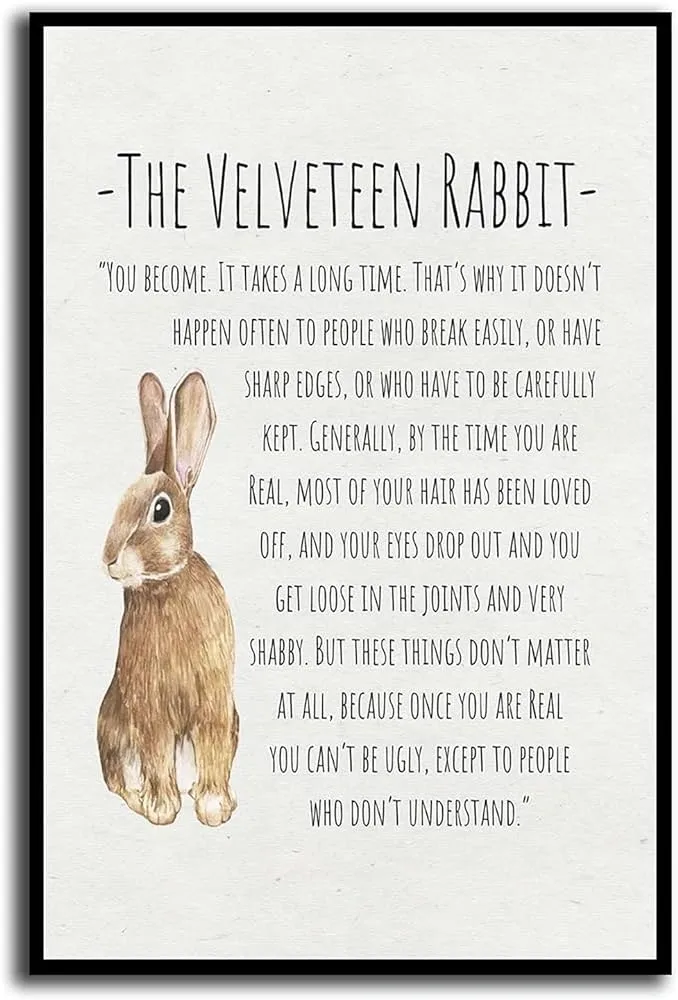Imagine that you were able to look at your life from the outside in, almost like peering in the windows of someone else’s house. What would you see? What would you think and feel? Would you want to go inside or run away in search of a very different one? I’ve met a lot of people in my line of work, and each present with a unique set of circumstances and problems. Still, there is one strikingly similar problem shared by a good majority of my clients: the problem of the provisional life.
What is a Provisional Life?
Something provisional is temporary, transient, it holds space for the ‘real thing’. A provisional life is one where you are chronically bored, restless, or dissatisfied. It’s the nagging sense that your ‘real life’ hasn’t yet begun and the silent agreement to be hopeful it will soon. It’s the pit in your stomach when driving to a dead-end job, the loneliness of a loveless marriage, and the grief you feel when you think about all the time you’ve wasted. A provisional life is one you live inside but never quite feel ‘alive’ in.
What’s surprising is that most people living inside a provisional life don’t know it, and most wouldn’t even say they’re unhappy. Instead, they come up with all kinds of other synonyms to describe how they feel inside: depressed, down, tired, frustrated, numb, or lonely. The problem is that no matter how provisional a life is, it is still the only life we have, and the only one we know. This makes naming the problem a most difficult, painful, and terrifying feat. Without it – what would remain? What would we have to show for our years? Who would we be?
10 Signs of a Provisional Life
Because of the incredibly high stakes involved in admitting we don’t really want the life we have, the provisionality of life remains a mostly hidden and unconscious problem. Unconscious problems always find ways to express themselves, often through the inherent cracks in our psychological makeup. If your cracks (inherited vulnerabilities, historical issues, etc.) reside in neuroticism, anxiety, and perfectionism, they will probably manifest in this way. If they reside in moodiness, dysthymia, and depression, these are the symptoms you are likely to experience. Same goes for anger, addiction, impulsivity, etc.
Cracks also exist within certain areas of the provisional life, and these are often the ones clients will scapegoat their unhappiness to. The person with a shitty job looks for a new one, the person with a shitty marriage looks for a marriage counselor, and the person with a tiny house saves up for a bigger one. Having seen many a client through such transitions, I can tell you they never solve the root problem when a provisional life is at play.
Over the years, I have gotten better at naming the root issue, and I can sometimes teach people what to look for on their own so they can name the problem themselves. It’s nearly impossible to solve an unnamed problem, so the naming is almost always the first step. While the discontent of a provisional life will seep through the individualized cracks in your psychological makeup, there are also some overarching signs of most root problems.
Here are some of the signs that can indicate you are living a provisional life:
1. You are bored, unmotivated, or borderline apathetic
A provisional life is a lot like a Groundhog day existence where you wake up and shower, work, eat, sleep, and repeat. There’s nothing to keep you motivated, passionate, and excited and over time, complacency starts to spread like a mold, shrouding everything in a dense gray cloud. You start to lose the natural joy and wonder you had when you were young and lose the ‘muscle memory’ to even access these more enthusiastic states.
2. You feel bogged down, drained, and exhausted by your routine
Freud was obsessed with his psychosexual model, and succeeded in defining ‘libido’ in sexual terms. Jung believed that libido wasn’t a distinctly sexual drive (although it could manifest this way), but instead was an instinctual drive towards people, things, and situations that we were inherently attracted to. With this attraction, it’s easy to find the energy, willpower and motivation to do things but without it, we can easily become drained, tired, and exhausted.
3. You have deep regrets about paths untaken or opportunities missed
Someone living a provisional life has nothing in the present to ‘live for’, and so tends to live in either the past or the future. This can lead to a lot of reminiscing about good times past, as well as ruminating on certain pivotal points in your life where you erred, took the wrong path, and wound up where you are now. Your unconscious mind gravitates towards these moments not to endlessly torture and shame you, but instead to try to help you see what’s wrong so you can make a course correction.
4. You fantasize and daydream about adventure, passion, and risks you’d never take
Provisional lives are aching to become real, which causes the mind to spin out fantasies and daydreams that contain the elements you’re missing right now. Again, the point of fantasy is to point your compass back to true north, to remind you that you still have time to write a different sort of ending for yourself. The human psyche seeks wholeness through compensation, always presenting to you the things you need to become whole, and the things your life needs to become real. Keep in mind that while your fantasies are metaphorically accurate, the exact contents should not be taken literally.
5. You’re always a few circumstances away from being happy or content
Something provisional stands in for something more real and permanent, suggesting it isn’t ‘yet’ substantive enough to last. Someone living provisionally will come into therapy and say things like, “If only I could…” or, “I’ll be happy if/when _____”, failing to look back at the many times before this sentiment has proven untrue. The truth is your nagging wife, low bank account balance, and narcissist boss isn’t the problem – they didn’t make your life provisional.
6. You feel stagnant, stuck, trapped, or like you’re not growing or changing enough
Jung said that as long as man lives his life provisionally, his unconscious remains in a state of ‘constant irritation’ and he is perpetually dissatisfied. Humans can endure adverse conditions like these for short periods of time, but become increasingly neurotic the longer they persist. One of the ways this neuroses manifest is in the feeling of being stuck and unable to move, grow or change. Since movement is the defining characteristic of life, we know we aren’t doing it right when we feel stagnant.
7. You have goals, dreams and plans, and just as many reasons why they can’t happen now
Part of your unconscious knows that the only way out of your provisional life is to set a new course, so people in this predicament almost always have a cache of goals, plans, and dreams for a different future. But because of how much energy, will, and stamina needs to be allocated towards the half-life they’re in, there usually isn’t enough steam to push these into reality. Instead, the ego comes up with a laundry list of ‘yeah but’s’ to justify why none can be acted upon, at least for now.
8. You have to fight off the cynicism and fatalistic idea that none of it really matters
One of the harder aspects to face is the fact that in a provisional life, there isn’t much to fight for. We fight for the things we want, need, love, and care about – the things that matter most to us. In a provisional life, there is a dearth of things that matter enough. This breeds a kind of cynicism and nihilism which can show up in the way we view ourselves, our lives, the world, and the future.
9. Everything has started to feel like an obligation, expectation, or burdensome responsibility
Most modern provisional lives are build off a grid of obligations, responsibilities, and expectations. Most of the things we do are things we feel we must do, even though some part of us just doesn’t want to. If you feel completely beholden to such burdens, the chances are good that your life has become provisional.
10. You look at people who are truly happy and feel resentment, grief, or envy
You know those people who seem so genuinely happy, joyful, exuberant, and look like they’re living life to the fullest? Do you sort of hate them??? If so, it’s probably a reflection of your own life, and another strong sign that you’ve veered into the provisional territory.
In Summary
People would mostly prefer their problems be circumstantial in nature, and they are, but they forget to consider both the outer and inner circumstances that contribute to the problem. Why is it that a person would be leading a provisional life, why not just create the life they really want? I’ll do another blog next month on this topic. Stay tuned!
P.S. If you’re in the midst of a ‘provisional life crisis’, you can always email me to schedule an appointment. I’m available for telehealth or in-person sessions 🙂
Hailey

